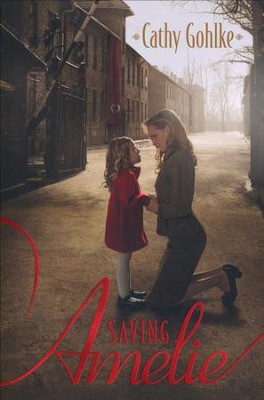 Rachel Kramer, adopted at birth, has spent years going back and forth between Germany and the USA, in which she holds dual citizenship. Though Hitler has come to power and war is on the horizon, Rachel gets dragged back to Germany again with her father, a eugenics scientist, but for the last time, she vows. While in Berlin, an estranged friend, married to Rachel's old suitor, comes to her with a fantastic tale of her husband's plan to get rid of their deaf daughter to purify his Aryan bloodline. Rachel can scarcely believe it, but she finally enlists the aid of an American journalist, Jason Young, to spirit little Amelie away. When a look through her father's disturbing research reveals secrets of her own background, Rachel must flee too, with Jason's help. However, with borders closing and the war descending, there appears to be no way out of Germany. Her only hope is in family she discovers through her father's papers - but will they trust this stranger and the deaf child that comes with her?
Rachel Kramer, adopted at birth, has spent years going back and forth between Germany and the USA, in which she holds dual citizenship. Though Hitler has come to power and war is on the horizon, Rachel gets dragged back to Germany again with her father, a eugenics scientist, but for the last time, she vows. While in Berlin, an estranged friend, married to Rachel's old suitor, comes to her with a fantastic tale of her husband's plan to get rid of their deaf daughter to purify his Aryan bloodline. Rachel can scarcely believe it, but she finally enlists the aid of an American journalist, Jason Young, to spirit little Amelie away. When a look through her father's disturbing research reveals secrets of her own background, Rachel must flee too, with Jason's help. However, with borders closing and the war descending, there appears to be no way out of Germany. Her only hope is in family she discovers through her father's papers - but will they trust this stranger and the deaf child that comes with her?The author does a good job of balancing Rachel's character - she has been brought up to believe she is superior, and as such, she is a tad arrogant. However, in spite of her feelings of entitlement, she is a sympathetic heroine, even before her spiritual transformation. Lea makes for an interesting counterpart; in so many ways, the girls are exact opposites, which highlights both their strengths and their faults. The progression of their relationship - initially featuring jealousy and resentment, but working their way to grudging respect and friendship - feels realistic, especially when each one has that which the other was deprived.
Though eugenics, an unethical branch of genetic research, is an important subject in the book, Gohlke does a good job clarifying the purpose of the studies without bogging down in confusing, scientific research - it may be genetics, but anyone can read this and understand what is going on. Clearly a great deal of research went into this book, far beyond eugenics and the progression of the war - from the "mercy killings" to the state of the church in Germany; from the censorship of foreign correspondents to the moral dilemma of Oberammergau, the Bavarian village of the Passion Play. Gohlke's writing makes us question, are we taking the easy way of faith, the way that can suddenly catch us on that slippery slope into apostasy? Or are we obeying God's word and doing what is right regardless of the consequences, though it makes us uncomfortable, makes us unpopular, or makes us enemies? Many of the Church who remained faithful to God through Hitler's rise to power, who spoke out against him and showered love on the persecuted, did not live to see the end of the war. Do we have that kind of faith?
An astounding historical read, filled with tenderness and suspense - 5 out of 5 stars!
No comments:
Post a Comment